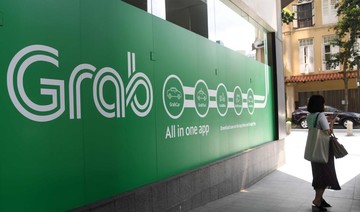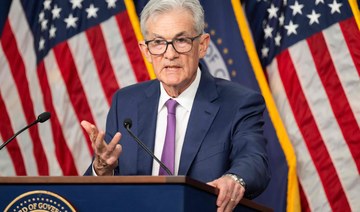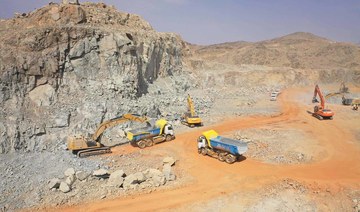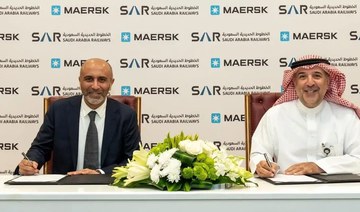SINGAPORE: Grab unveiled a grocery delivery service on Tuesday, betting the firm’s extensive network of 7.1 million drivers, agents and merchants will help steer the company as it expands beyond its core ride-hailing business across Southeast Asia.
The strategy to provide “everyday” offerings via a new open platform underscores Grab’s ambition to secure its dominant market share at a time when rival Go-Jek is embarking on a $500 million expansion into markets including Thailand and Singapore.
Go-Jek, the main ride-hailing player in Indonesia that is backed by private-equity firms KKR and Warburg Pincus, has expanded into digital payments, food delivery and on-demand cleaning and massage services.
Grab, which is transforming itself into a consumer technology group, already offers loans, electronic money transfers, payments and food delivery. With the launch of GrabFresh, it will now provide on-demand grocery delivery.
“We believe that as we offer more localized everyday services, there will be more users and higher engagement across the user base,” Anthony Tan, Grab’s 36-year-old co-founder and group CEO, said on Monday ahead of the launch.
“When that happens, it attracts more partners and it’s a virtuous upwards cycle. Great for business,” said Tan, who scored a big win when Uber handed over its regional operations to Grab this year in return for a stake.
For GrabFresh, Grab said it was partnering with a Southeast Asian grocery delivery provider HappyFresh, part of its new open platform strategy where partners can access parts of its technology such as logistics and payments.
“Whether it’s food, whether it’s groceries, we need to make sure that all these are well funded, both technologically and financially,” Tan said at Grab’s new downtown office in Singapore, where boxes of Apple Macbooks were piled up.
A grocery delivery service could pit Singapore-headquartered Grab against firms such as Amazon.com and RedMart, owned by Alibaba-backed Lazada, which already offer online grocery shopping in the city-state.
Grab will test GrabFresh in Jakarta from this month and roll it out in Thailand and Malaysia by the end of 2018. A launch in other countries in the region will follow.
Grab, which employs 5,000 people, counts firms such as Japan’s Softbank Group and Chinese ride-hailing firm Didi Chuxing among its investors.
Last month, Toyota Motor Corp. agreed to pump in $1 billion in Grab, which a source familiar with the matter said valued the company at just over $10 billion.
Grab facilitates more than 6 million rides per day across eight countries and more than 200 cities, up from 2.5 million rides just a year ago, making it one of the largest ride-hailing platforms in the world. It expects to hit revenues of $1 billion by the end of 2018.
Tan, however, said that the firm’s goal was “not to be blindly shooting for a target. The way to think about is, how do we create a sustainable business.”
To this end, Grab plans to add highly used everyday services to its app, together with its partners, who can use the firm’s new open platform to integrate their services with Grab.
Grab’s app is also set for a facelift, with a new interface offering users quicker access to services such as payments and food delivery. It will also introduce a newsfeed, helped by a content partnership with Yahoo.
When asked about plans for a public listing, Tan said it was something the company “should think about, but not immediately for sure.”
Grab launches grocery delivery service in race for growth
Grab launches grocery delivery service in race for growth
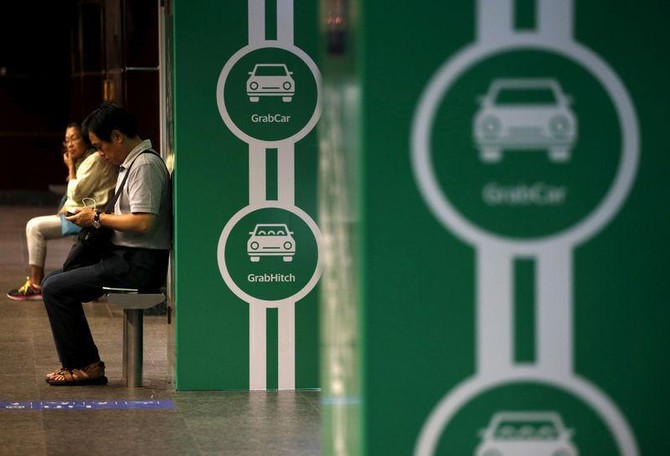
- Grab, which is transforming itself into a consumer technology group, already offers loans, electronic money transfers, payments and food delivery
- Grab will test GrabFresh in Jakarta from this month and roll it out in Thailand and Malaysia by the end of 2018
Closing Bell: TASI ends the week in green at 12,352
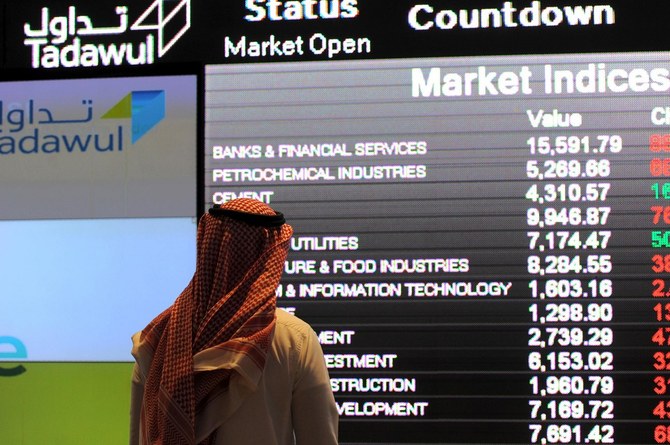
RIYADH: Saudi Arabia’s Tadawul All Share Index ended the week by gaining 6.68 points, or 0.05 percent, to close at 12,352.33 on Thursday.
The total trading turnover of the benchmark index was SR6.55 billion ($1.74 billion) as 120 stocks advanced, while 103 retreated.
The parallel market, Nomu, also gained 95.60 points, or 0.36 percent, to close the trading session at 26,457.81. This comes as 29 stocks advanced, while as many as 27 retreated.
On the other hand, the MSCI Tadawul Index slipped by 2.37 points, or 0.15 percent, to close at 1,547.20.
The best-performing stock on the benchmark index was Al-Baha Investment and Development Co., as its share price surged by 7.69 percent.
Other top performers included Raydan Food Co. and the Company for Cooperative Insurance, whose share prices soared by 7.29 percent and 6.63 percent, to stand at SR30.90 and SR160.80 respectively.
Electrical Industries Co. and the Mediterranean and Gulf Insurance and Reinsurance Co. also fared well during the last trading session of the week.
The worst performer was Saudi Chemical Co., whose share price dropped by 5.36 percent to SR7.77.
Power and Water Utility Co. for Jubail and Yanbu as well as the National Company for Glass Industries, underperformed as their share prices dropped by 5.22 percent and 4.82 percent to stand at SR63.50 and SR42.45, respectively.
On the announcements, Bank AlJazira announced its interim financial results for the period ending March 31 with net profit amounting to SR300.4 million compared to SR279.3 million in the previous quarter.
In an official statement on Tadawul, the bank attributed the increase in the net income to a decrease in total operating expenses by 6 percent.
“The decrease in total operating expenses is mainly due a decrease in net impairment charge for financing and other financial assets, other general and administrative expenses, salaries and employee-related expenses and other operating expenses against an increase in depreciation and amortization expenses,” the statement said.
Conversely, there has been a slight decrease of 0.2 percent in total operating income, primarily attributed to a reduction in net financing and investment gains. Additionally, the rise in net income was partially tempered by increased zakat charges over the period.
GCC central banks hold interest rates steady for 6th time following Fed’s move
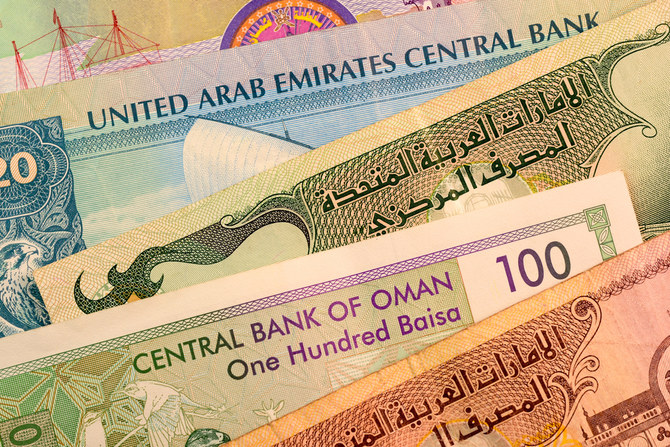
RIYADH: Gulf Cooperation Council central banks have held interest rates steady for the sixth time as the US Federal Reserve keeps its benchmark level between 5.25 percent and 5.50 percent.
As most currencies in the region are pegged to the US dollar, monetary policy follows the decisions taken in Washington, with policymakers opting to lock the rate at the level it has been since July.
The freeze comes as the rate-setting panel cites “a lack of further progress toward the committee’s 2 percent inflation objective.”
Vijay Valecha, chief investment officer at Century Financial, told Arab News: “This decision marks the sixth consecutive time that the central bank has chosen to keep rates unchanged. Market expectations have adjusted, now forecasting only one rate cut by year-end compared to the six anticipated at the beginning of 2024.”
He added: “The monetary policies of most central banks in the GCC countries, including the UAE, Saudi Arabia, Bahrain, Oman, and Qatar, typically mirror those of the Fed due to their currencies being pegged to the US dollar. Kuwait is the exception in the bloc, as its dinar is linked to a basket of currencies.”
Valecha continued by stating that as a result, interest rates in GCC markets are also anticipated to remain stable in the near future, which bodes well for the profitability of GCC banks.
This decision implies that the Saudi Central Bank, also known as SAMA, will maintain its repo rates at the current level of 6 percent.
The UAE central bank, along with Kuwait, Qatar, Oman, and Bahrain, also mirrored the Fed’s move.
Repo rates, which represent a form of short-term borrowing primarily involving government securities, underscore the close economic ties and financial dynamics between the GCC countries and the global economic landscape, particularly the US.
The US central bank also stated that it “does not expect it will be appropriate to reduce the target range until it has gained greater confidence that inflation is moving sustainably toward 2 percent.”
This indicates that rate cuts are not on the cards anytime soon, until inflation cools down and moves sustainably toward the 2 percent target set by the US Fed.
US car marker Lucid partners with KACST to advance EV technology in Saudi Arabia

RIYADH: US electric vehicle manufacturer Lucid Group and Saudi Arabia’s King Abdulaziz City for Science and Technology have inked a pact to boost EV technology development within the Kingdom.
As part of the deal, the California-based firm, in which Saudi Arabia’s Public Investment Fund holds a significant stake, will collaborate with KACST on joint research, utilizing the institute’s services, facilities, and products for dedicated research into advanced battery technologies and materials.
Additionally, they will conduct studies in aerodynamics, autonomous driving, and artificial intelligence technologies, according to a press release.
Faisal Sultan, vice president and managing director of Middle East, Lucid Group said: “Lucid’s goal is to inspire the adoption of sustainable energy by creating advanced technologies. This Memorandum of Understanding marks a key step towards achieving this vision, acting as a catalyst to advance and elevate the entire EV industry and inspire the adoption of sustainable transportation in support of the Kingdom’s vision for a more sustainable and diversified economy.”
The partnership between Lucid and KACST will also include research on electric vehicles, assessing their performance to ensure they are suitable for the climatic conditions in the Kingdom, the release added.
The joint research and development headquarters will be established at the national laboratories in KACST and are scheduled to launch during the third quarter of 2024.
“Using our state-of-the-art facilities, the research conducted under this project will advance electric vehicle systems and aid the development of technologies to support autonomous driving, in line with national aspirations for research, development and innovation in the energy and industry sector,” said Talal bin Ahmed Al-Sudairi, senior vice president of KACST for research and development sector.
The deal will see Lucid Group and KACST collaborating to leverage their expertise in scientific and technical research. Their joint efforts will focus on developing research programs geared toward creating technical solutions for the transportation and energy sectors, thereby bolstering the national economy.
In September 2023, Lucid opened its first plant outside the US in Saudi Arabia with an initial capacity to produce 5,000 EVs a year.
This came as the Kingdom’s government pledged to buy up to 100,000 vehicles from the company over 10 years.
Saudi Arabia open to financing up to 75% of certain industrial projects, says minister

RIYADH: Saudi Arabia is open to providing up to 75 percent of financing for certain industrial projects, a minister has revealed in a bid to incentivize foreign investment and private sector players.
During his discussion with several Qatari investors on the sidelines of the 52nd meeting of the Gulf Cooperation Council Industrial Cooperation Committee in Doha, Bandar Alkhorayef, the Kingdom’s minister of industry and mineral resources, highlighted the vast opportunities that Saudi Arabia’s untapped mining potential provides to global investors.
According to a release on X, he reaffirmed that in addition to the incentives provided by the industrial and mineral wealth system and the multiple sources of financing, the prepared infrastructure in more than 36 industrial cities around the Kingdom offers a sum of qualitative capabilities such as the production of prefabricated factories and long-term rentals.
Alkhorayef further lauded the private sector as the real engine for the Kingdom’s industrial development, noting that the National Strategy for Industry was initially built in partnership with the private sector.
This stems from the nation’s belief in the importance of private sector players and their ability to create promising opportunities in various fields, the release added.
In another boost to the industrial sector in the GCC, the minister headed the Kingdom’s delegation to the industrial committee meetings in Doha. The panel discussed a number of initiatives proposed by Saudi Arabia, including the Gulf Industrial Excellence Award.
In addition, the meeting reviewed the Arab industrial integration strategy and attempts to unify the support provided to the industrial sector in GCC countries, aiming to achieve economic growth and overcome challenges and obstacles faced in the industry.
Furthermore, developments in finding a unified definition for the Gulf national product and its proposed standards were discussed.
The meeting also stressed the importance of supporting the industrial sector in the GCC countries and integrating the roles of respective nations to aid in developing their respective national industries.
SAR sees 9% annual growth in cargo transported
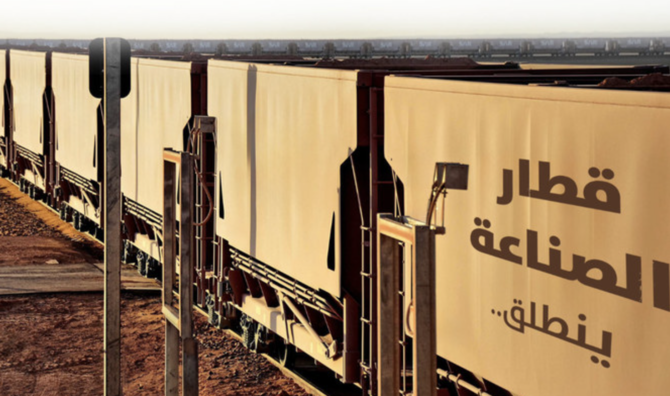
RIYADH: The volume of minerals and goods transported by Saudi Arabia Railways reached 6.34 million tonnes during the first quarter of 2024, an annual increase of 9 percent.
According to its quarterly report, SAR stated that over 2.7 million passengers utilized its services, marking a 23 percent growth compared to same period last year.
Passenger rides also increased by 3 percent, reaching a total of 8,252 trips across the East Train, North Train, and Haramain Express train networks.
The surge in the total volume of minerals and goods has helped reduce the number of truck trips on the country’s roads by more than 500,000, leading to improved traffic safety, less wear and tear on road infrastructure, and lower carbon emissions.
Bashar bin Khaled Al-Malik, CEO of SAR, affirmed on X, that these outcomes highlight the growing demand for distinguished railway transportation services, known for being among the most reliable, safe, and eco-friendly modes of travel.
He further noted that SAR is steadily progressing toward achieving its national strategic goals, initiating several pioneering and distinctive future projects during the first quarter of 2024. This includes the signing of the luxury “Desert Dream” train agreement, a first in the Middle East and North Africa, as reported by the Saudi Press Agency.
Additionally, Al-Malik disclosed that the train is slated to commence its inaugural trips by the end of 2025. He elaborated that SAR has connected the logistics zone to the second industrial city in Dammam to the railway network.
This connection will provide access to King Abdulaziz Port in Dammam, the Riyadh Dry Port, as well as the ports of Jubail and Ras Al-Khair.
Furthermore, in February, SAR inked two memorandums of understanding with the Saudi Authority for Industrial Cities and Technology Zones, also known as Modon.
This collaboration with the National Industrial Development and Logistics Program aims to strengthen supply chains in the central and eastern regions, enhancing product access to local, regional, and global markets.
During the same month, SAR finalized a contract with Stadler, a Swiss rail vehicle manufacturer, to acquire 10 new passenger trains for the East Train network.
The deal will increase the number of passengers using the transport system in the region to 3.8 million a year. This will enable the operation of direct “Express” trips from Riyadh to Dammam to meet the escalating demand for trips between the two primary cities in the Kingdom.


